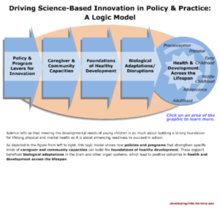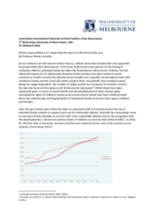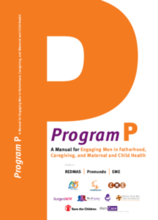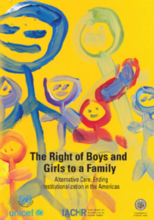Displaying 641 - 650 of 947
This narrated interactive feature presents a logic model showing how policies and programs that strengthen specific kinds of caregiver and community capacities can build the foundations of healthy development.
In this presentation Professor Connolly reviews recent trends in the use of kinship care in Australia and discusses what this shift means in the context of the ‘residual’ model of child protection used in the country.
Infant Mental Health Journal has published an important Special Issue on Global Research, Practice, and Policy Issues in the Care of Infants and Young Children at Risk. This article describes a model of care for abandoned and neglected infants in need of urgent physical, social, and medical support as implemented by the Child's i Foundation, an international, nongovernmental organization operating in Uganda.
This article uses data collected from adoptive parents’ postadoption and governmental data in Romania, Ukraine, India, Guatemala, and Ethiopia to focus on domestic adoption in each of these countries. The article highlights both promising practices in domestic adoption as well as policies and practices that require additional research.
This article investigates effectiveness of parenting interventions on reducing harsh and harmful parenting practices in low-to-middle income countries.
This study examines the prevalence of maternal and paternal spanking of children at 3 and 5 years of age and the associations between spanking and children's externalizing behavior and receptive vocabulary through age 9.
The Program P Manual is a resource developed as part of the global MenCare campaign that identifies best practices on engaging men in maternal and child health, caregiving, and preventing violence against women and children, through the lens of gender equality. Though the main focus of Program P is to engage men via the public health sector, the manual also provides tools and resources for individuals and organizations that want to work more generally with men as caregivers and fathers.
This section is the first of three in Program P: A Manual for Engaging Men in Fatherhood, Caregiving, and Maternal and Child Health.
This section is the second of three in Program P: A Manual for Engaging Men in Fatherhood, Caregiving, and Maternal and Child Health.
This report by the Inter-American Commission on Human Rights (IACHR) analyzes children’s right to live and be raised by their families, and establishes the resulting obligations for States when it comes to supporting and strengthening families’ ability to raise and care for their children.






